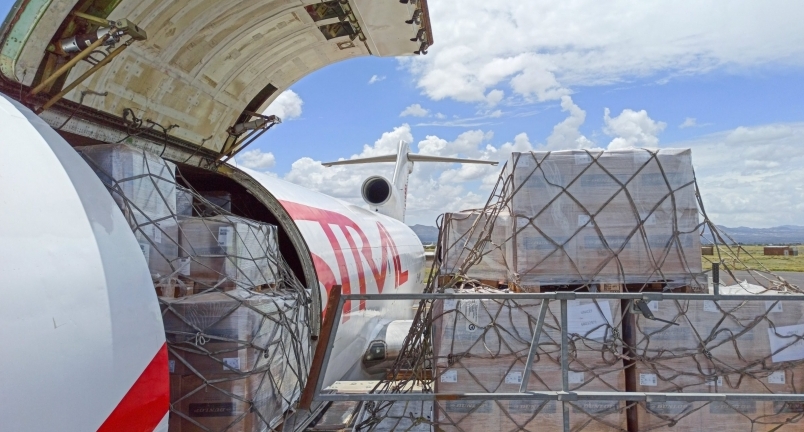Astral Aviation to perform Covid-19 vaccine flights within Africa
Astral Aviation has announced that it is ready to support the distribution of the recently discovered Covid-19 vaccines across its scheduled network of 15 destinations within Africa.

November 26, 2020: Astral Aviation has announced that it is ready to support the distribution of the recently discovered Covid-19 vaccines across its scheduled network of 15 destinations within Africa and a further 50 destinations available on charters with its fleet of 14 freighter aircrafts.
According to Astral Aviation CEO Sanjeev Gadhia, “Astral has transported thousands of tonnes of vaccines and pharma products on its fleet in its 20-year existence and has played an important role in various immunisation programmes in Africa and across the world including supporting efforts to tackle Ebola in the Democratic Republic of Congo; and the Cholera pandemic in Yemen.”
During Covid-19, Astral transported in excess of 15,000 tonnes of PPE, testing kits, ventilators, and related products to over 40 countries in Africa, confirmed Charles Ngwalla, who recently took on the position of alliances and key accounts manager at Astral.
Also Read: Astral to start flying B767F from ATSG by Dec
With the arrival of the first converted B767-200 freighter in Africa, with a payload of 40 tonnes / 350 cubic meters, which will join Astral’s fleet in January 2021, Astral will offer an on-demand charter service for vaccines to Africa. This will complement Astral’s existing regional fleet of B727Fs, McDonald Douglas DC-9Fs, Fokker 50, and Fokker 27Fs to provide onward delivery to the end-destination from its Nairobi hub, according to Gadhia.
“Initiatives being developed by TIACA and Pharma.Aero, such as Project Sunrays, aim to help the air cargo industry get ready for the future handling, storage, and transportation of Covid-19 vaccines. Being a member of both associations, Astral will have clarity on the needs and expectations from vaccine producers and share its experiences on the infrastructure constraints of distributing vaccines in Africa,” according to Gadhia, who added that the much-anticipated distribution of vaccines from Q1 of 2021 will require collaboration on a large scale between the vaccine manufacturers and all members of the supply-chain, especially in Africa.


